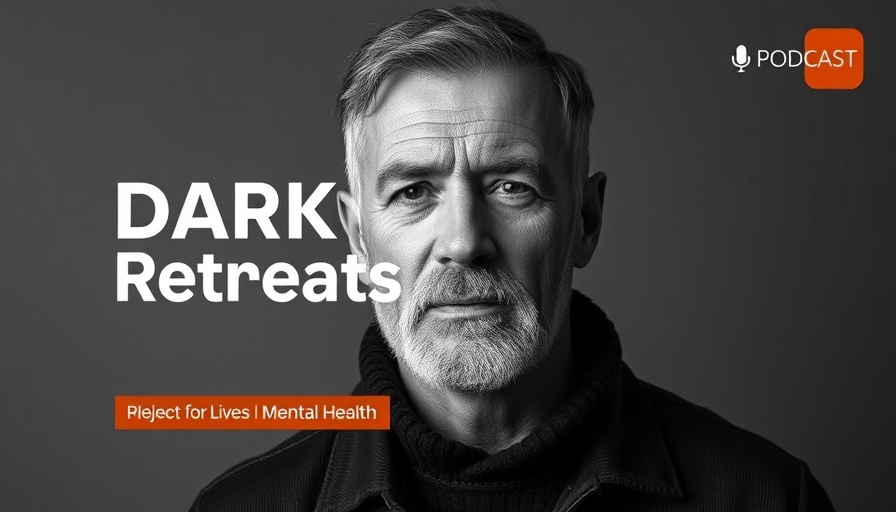
Understanding Softness in a Chaotic World
In our fast-paced lives, the pressures of anxiety, chaos, and expectations often mount, leading to a struggle that many face quietly. Managing mental health has never been more crucial, especially for students, caregivers, and professionals navigating the complexities of their emotional landscapes. Jillian Pransky’s exploration of softness as a remedy for stress and anxiety reminds us of the gentle power that lies in our breath and our capacity for relaxation.
The Battle Against Anxiety and Stress
Anxiety disorders—including conditions like generalized anxiety disorder and social anxiety—affect millions globally, leaving a trail of panic attacks and crippling tension in its wake. With the added challenges of COVID-19 and economic uncertainty, the need for effective coping strategies has intensified. According to recent studies, the role of mindfulness and soft relaxation techniques, such as breathing exercises and yoga, has emerged as particularly beneficial. Pransky argues that softness can be a counterbalance to the intensity of our daily experiences.
How Mindfulness Nurtures Resilience
Research shows that mindfulness can significantly alleviate stress by enhancing present-moment awareness. This concept is vital when considering stress in various life stages—from the pressures faced by students about academic performance to the caregivers balancing multiple responsibilities. Mindfulness not only fosters awareness but also supports emotional intelligence, allowing individuals to manage stress more effectively. Pransky’s focus on breathing techniques and gentle movement aims to cultivate a sense of safety and openness within oneself, leading to resilience.
Emotional Intelligence and Self-Care: The Hidden Keys
As we deepen our understanding of how our emotions manifest within our bodies, we start to realize the importance of self-care. Emotional intelligence can significantly enhance the way we cope with our feelings. Incorporating practices such as meditation, gentle yoga, or even art therapy into daily routines provides not only an escape but also a foundation for building resilience. Regularly engaging in these activities reinforces our ability to navigate life with a more positive outlook.
Practical Techniques for a Softer State of Mind
Pransky outlines several practical techniques focused on releasing tension:
- Listening Softly: Breathe through your heart, allowing emotions to flow freely without judgment.
- Letting Go of Tension: Long-held poses in yoga can help release tightness, particularly in the hip flexors, promoting an environment where emotional experiences can surface and be navigated thoughtfully.
- Breath Awareness: Engaging in soft belly breathing exercises gets to the core of relaxation. By thinking “soft” on the inhale and “belly” on the exhale, individuals can encourage a sense of gentle acceptance of their emotions.
- Connection with Nature: Spending time outdoors and observing an expansive sky can reinforce feelings of tranquility and connectedness.
These techniques can help dismantle the armor of tension built up over time, allowing for a recentering in times of distress.
The Path Forward: Reducing the Stigma
Despite the growing awareness around mental health, stigma remains a barrier for many seeking help. Programs advocating for mental health education, such as those seen in schools or community outreach efforts, are essential in combating this stigma. They can also encourage individuals to utilize available resources like the SADAG helpline or local support groups. Society’s narrative around therapy and mental health must shift towards one that embraces recovery and resilience, normalizing the necessity of seeking help.
Conclusion: Embracing Softness for Lasting Well-Being
In conclusion, as we traverse the complexities of mental health, learning to meet our struggles with softness may pave the way for better outcomes. Softness allows us to open up, acknowledge our sensations, and navigate through the emotional storms we face. With resilience nurtured through mindfulness practices and supported by community efforts, individuals can combat anxiety and stress effectively. Let’s embrace softness and begin the conversation about mental health within our communities.
If you or someone you care for is struggling with anxiety or mental health issues, consider exploring mindfulness practices or reaching out for support. Remember, you are not alone in this journey.
 Add Row
Add Row  Add
Add 




Write A Comment